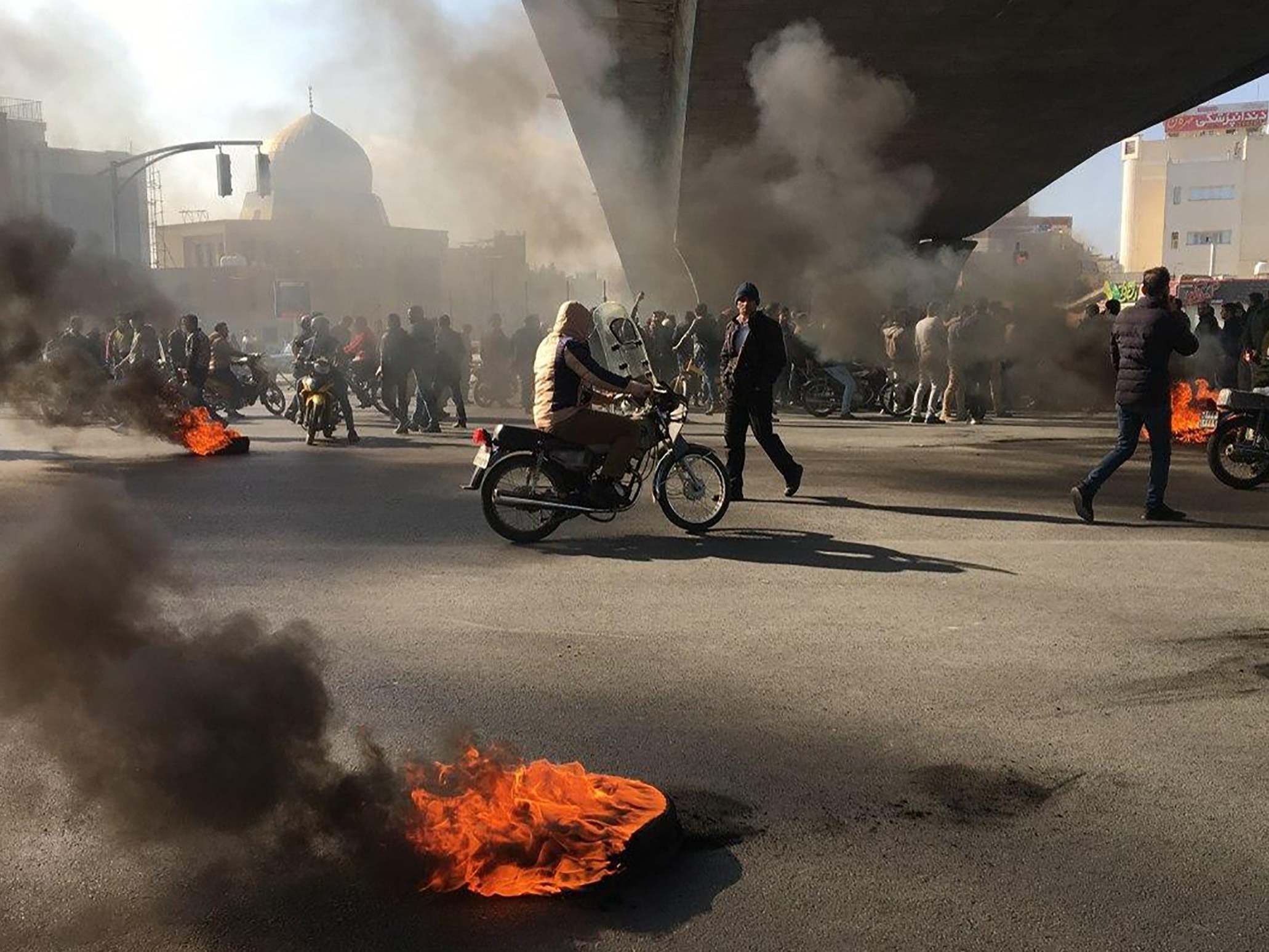The Loathsome Iranian Kleptocracy
"As often happens when the Iranian regime finds itself under pressure, such as the Green Revolution in 2009, when there were mass protests against the result of the presidential election, the ayatollahs resort to the brute force of the Islamic Revolutionary Guard Corps (IRGC) and the Basij, the IRGC's volunteer militia, to crush dissent. The regime employed similar measures during the Green Revolution, when thousands of Iranian protesters, who were dismayed at the prospect of former Iranian President Mahmoud Ahmadinejad serving another four-year term of office, staged the largest anti-government protests Iran had witnessed since the 1979 Islamic revolution."
"Regular outbursts of dissent have been reported throughout Tehran since the end of last year, mainly in response to the crippling effect the US sanctions regime is having on the economy, where inflation is running at around 40 percent, and the collapse in the value of the rial, the national currency, has caused dramatic rises in the cost of basic staples, with red meat and poultry rising by 57%, milk, cheese and eggs by 37%, and vegetables by 47%."
Con Coughlin, Telegraph's Defence and Foreign Affairs Editor, Distinguished Senior Fellow at Gatestone Institute
 |
| With the Iranian economy under such intense pressure as a result of the sanctions, the regime has little room for manoeuvre, so it faces a stark choice: either radically reform its conduct or continue to face the wrath of the Iranian people. Pictured: Iran's Supreme Leader, Ayatollah Ali Khamenei (left) and President Hassan Rouhani. (Image source: khamenei.ir) |
But in its focus on external relations, and the mischief it is able to exert on neighbouring countries, it has attracted unwanted attention to its corrupt regime along with its interference in the internal affairs of other countries such as Lebanon, Syria and Yemen, stirring up sectarian antipathies and inciting violence. Its proxy Shiite militia Hezbollah in Lebanon, and its support for Hamas in Gaza, both groups involved in threatening the existence of Israel, has given it recognition as the sponsor of terrorism.
Iranians facing difficult economic times and shortages of basic goods, medicines and food, are resentful that their countries' nuclear ambitions and funding of terrorism abroad have brought sanctions crippling to the economy, and they are the ones to suffer, not the Iranian elite, the leading clerics and the leaders of the IRGC, all of whom have amassed substantial private funds siphoned away from the ruined economy and safely nested in Swiss bank accounts.
A country with the kind of vast oil reserves that Iran has, unable to provide for its population, yet funding terrorist groups and deploying its military and their military proxies in the bloody conflict in Syria and Yemen, has failed its people. Thousands of Iranians have joined protests in response to the government of President Hassan Rouhani rationing fuel and pumping up its cost by 50 percent to a population already hard-pressed to feed themselves.

Now that the police, the military and Basij are using live rounds on the protesters, a reputed several hundred people have been killed, characterized by the regime not as citizen-protesters, but as criminals, just as Syria's President Bashar al Assad spoke of Syria's majority Sunni protesters as 'terrorists' he was justified in slaughtering by the hundreds of thousands with the help of Hezbollah and the IRGC al Quds force.
And while Iranians are protesting their government's pursuit of regional power and financial support of terrorism groups -- "not to Gaza, not to Lebanon, I sacrifice my life for Iran", the popular rebuke of the protesters in Tehran and elsewhere -- protests in Iraq and Lebanon against Iranian hegemonic interference in their countries have sparked public anger. Those shot dead in the protests are being held by the government instead of being delivered for burial to their families, in fear of funerals becoming lightning rods for more protests.
The regime shut down the Internet to keep people from organizing protests. Although the United States indicated it was capable with its technical capability to restore Internet service in Iran, the Iranian regime now gloats the protests are almost over, and it has itself restored service. Iranian officials' corruption has been rampant. Its leaders who claim the U.S. and Israel are responsible for Iran's financial losses are known to have hoarded billions for themselves.
And though they detest the West, that hasn't deterred Iranian leaders, despite threats they send to prove how much they hate the democracies which find the Republic's base oppression of its own people loathsome, become host to wives and children sent to live abroad floated by the funding siphoned from public funds.
 |
Demonstrators filled the streets of Tehran to protest economic downtown in Iran.
|
Labels: Crisis Management, Economy, Iran, Political Realities, Protests, Sanctions
0 Comments:
Post a Comment
<< Home